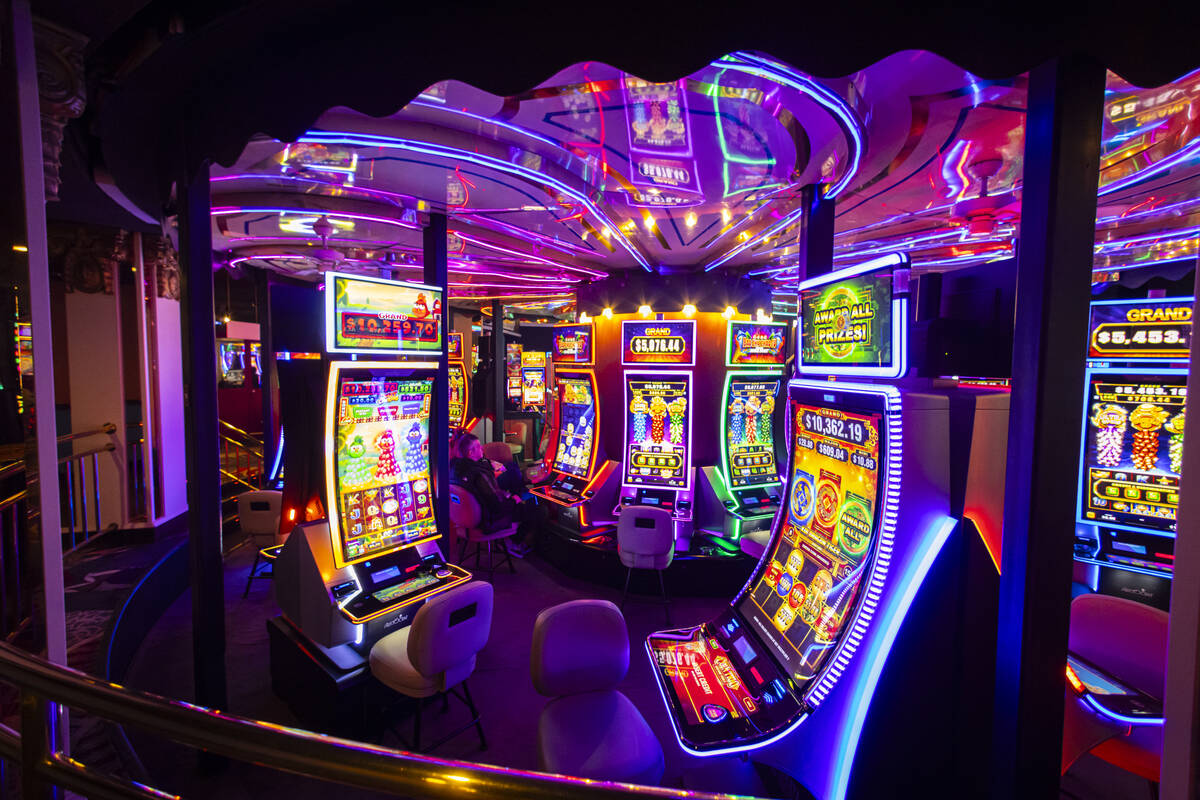Las Vegas casinos are using nightclubs, sports betting and flashy slot machines to attract and retain consumers who may driven more by experiences than by jackpots.

Their grandparents lined up for buffets, and their parents came for Celine Dion. But millennials and Gen-Z are coming to Las Vegas for something else entirely.
Nearly half of the city’s visitors last year were either millennials or Gen-Z, according to the Las Vegas Convention and Visitors Authority’s 2024 visitor profile report.
Despite the perception that they are still “only kids,” all but the youngest millennials are in their 30s and 40s, while most of Gen-Z is of legal voting age. And although their spending and gambling habits differ from previous generations, millennials and Gen-Z are a very valuable cohort for Las Vegas casinos.
“In an environment of increasing competition, it is vital that (casino) operators focus on delivering quality, distinctive experiences that not just meet but often exceed patron expectations,” said Sarah Grady, assistant director of the Lloyd D. Levenson Institute of Gaming, Hospitality and Tourism at the Stockton University (N.J.) School of Business.
That realization is prompting casinos across Las Vegas to carefully consider how they attract and retain consumers who may be less interested in jackpots and more driven by experiences.
Evidence of that shift can be seen in nearly every Las Vegas casino. Massive nightclubs, energetic pool parties featuring world-renowned DJs, celebrity chef restaurants, bars and lounges with crafted cocktails designed to be photographed, and slot machines that look more like video games than gambling devices have become commonplace.
‘Well-rounded experiences’ sought
Jonathan Jossel, chief executive officer of the Plaza hotel-casino in downtown Las Vegas, said non-gaming amenities are “really important” to operators in 2025.
“It’s really events that differentiate us from other places,” Jossel said, listing some non-gaming offerings at the property, such as pickleball, rodeo and free fireworks. “These events make a big difference in making us more relevant online, and that (attention) is from the younger demographic.”
Cliff Atkinson, chief executive officer of Virgin Hotels Las Vegas, said millennials and Gen-Z visitors are seeking “well-rounded experiences,” that include a little bit of everything the city has to offer.
“While gaming remains a key attraction, these generations are also drawn to the city’s diverse wellness and culinary offerings,” he said. “For millennials and Gen Z, we’ve seen that their perfect vacation blends the excitement of gaming with relaxing poolside moments, top-notch entertainment and delectable cuisine.”
Spending less on gambling
While that might not sound all that different from what previous generations sought in their Vegas vacations, the data suggests otherwise.
According to the LVCVA report, millennials (born between 1981 and 1996) spent an average of $768 gambling, $637 on food and drinks, $63 on shows or entertainment and $47 sightseeing. Gen-Z (born between 1997 and 2012) spent, on average, $575 in the casino, $541 eating and drinking, $94 at concerts or shows and $62 sightseeing.
Comparatively, Gen-X (current ages between 45 and 60) spent, on average, more on gambling ($873) and less on shows/entertainment ($56) and sightseeing ($35) than either of the other two generations. Gen-X’s spending on food and beverages ($617) was less than millennials but more than Gen-Z, according to the LVCVA report for last year’s visitors.
Gen-X also spent less per night for hotel stays ($167) than either millennials ($192) or Gen-Z ($171), likely due to receiving more comped rooms tied to higher gambling spend.
Changing consumer behaviors also plays a part in how Las Vegas casinos are attempting to appeal to the two younger generations.
For starters, overall attitudes towards gambling as a socially acceptable activity continue to favor casino operators.
According to recent research by the American Gaming Association, roughly 9 in 10 Americans believe casino gambling to be acceptable for themselves or others. Fifty-nine percent (the highest ever) found gambling personally acceptable. More than 55 percent of U.S. adults participated in some form of gambling (including lottery) in 2023. As of August, 49 percent (122 million people) visited a casino for gambling or other entertainment purposes within the past 12 months, the highest level of casino visitation on record.
“There has also been an increase in the number of individuals that believe that the value of casino entertainment is ‘excellent/good compared to alternatives’ and that casinos are innovative,” Grady said, citing the AGA’s research. “These findings, added to the fact that the average age of casino visitors has dropped from 47.5 in 2014 to 41.9 in 2024, could suggest that younger generations have a generally positive impression of gaming and an interest in participating.”
Reaching younger gamblers
Millennial and Gen-Z gamblers are also drawn to digital options. Online casino gaming, or iGaming, is available in six states and online poker is offered in Nevada. Online sports betting, which is now legal in 34 states and the District of Columbia, is the fastest-growing segment of regulated gaming in the United States.
Grady said some casino operators are parlaying that interest into tangible returns.
“While perhaps not a major revenue earner for the industry, sports betting taps into younger generations’ familiarity with sporting contests and engages them in a casino experience that does not rely on knowledge of more traditional casino products,” she said. “Once they’ve had the chance to experience the casino environment through sports betting or other gaming products, they have an opportunity to explore everything else casinos have to offer.”
Not every casino is chasing millennials and Gen-Z the same way. Some, such as Jossel, believe patience and waiting for consumers to age into traditional habits might be just as effective as constant reinvention.
“Everyone gets older, and their tastes evolve. Just because you’re doing something in your 20s, 30s or 40s doesn’t mean you’re going to be doing that in your 50s, 60s and 70s,” he said, leaning on prior discussions with patrons who played bingo today but did not when they were younger and visited casinos in Las Vegas. “So, this idea of everyone saying we need to adjust our marketing plan to target the young people never really resonated with me.”
Jossel admits the newer slot machines, which more closely resemble a computer game than a Vegas-style one-armed bandit, have forced him to look at the situation differently. He said younger gamblers are spending more time, and more money, on these sleek-looking machines with fancy graphics and interactive components.
“Games have bets that range from 40 cents up to $40 or $50, and I see these young people playing $20 a spin, no problem. In the old days, you just never saw that. You just never, ever saw people betting those big numbers,” he said. “And I got to believe that’s the new product, the new games, but also the impact of the influencers on social media.”
Even if behaviors are shifting, traditional casino games are still relevant to younger audiences, said Atkinson.
“The rise of gaming influencers on YouTube, Instagram and TikTok has sparked a renewed interest in traditional games among younger generations. These influencers are engaging their audiences on social media, enticing them to visit casinos for an authentic gaming experience,” he said. “While online gaming and sports betting remain popular, there’s still a strong desire for the tangible gaming experiences that Las Vegas offers.”
In other words, while their grandparents were piling buffet food on their plates, and their parents sang along to Celine’s classics, this new generation is coming to Las Vegas for craft cocktails, video-game-inspired slots and influencer-driven experiences. All of which Vegas has plenty to offer.

